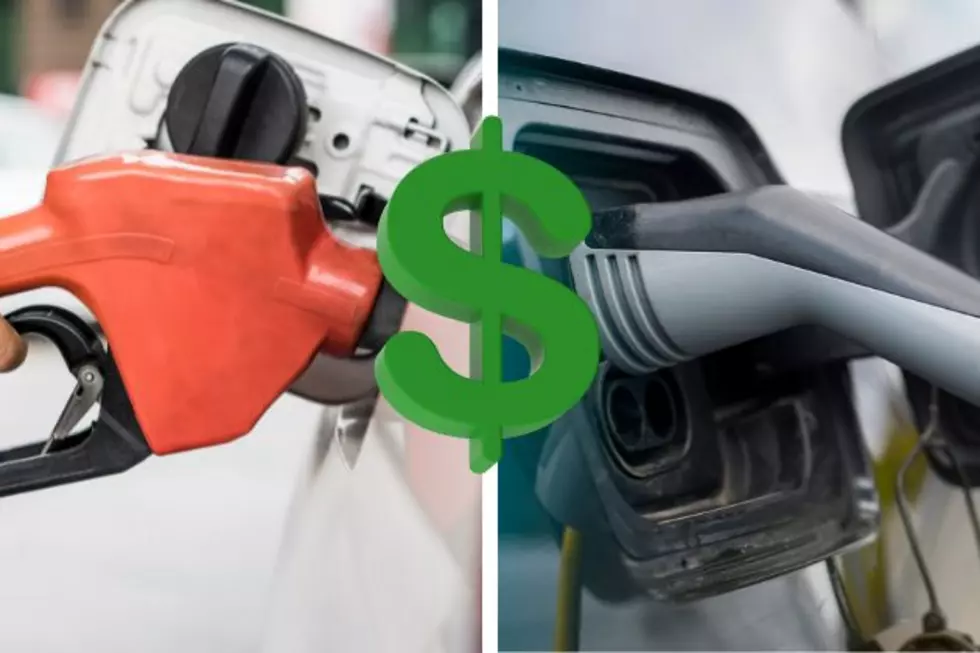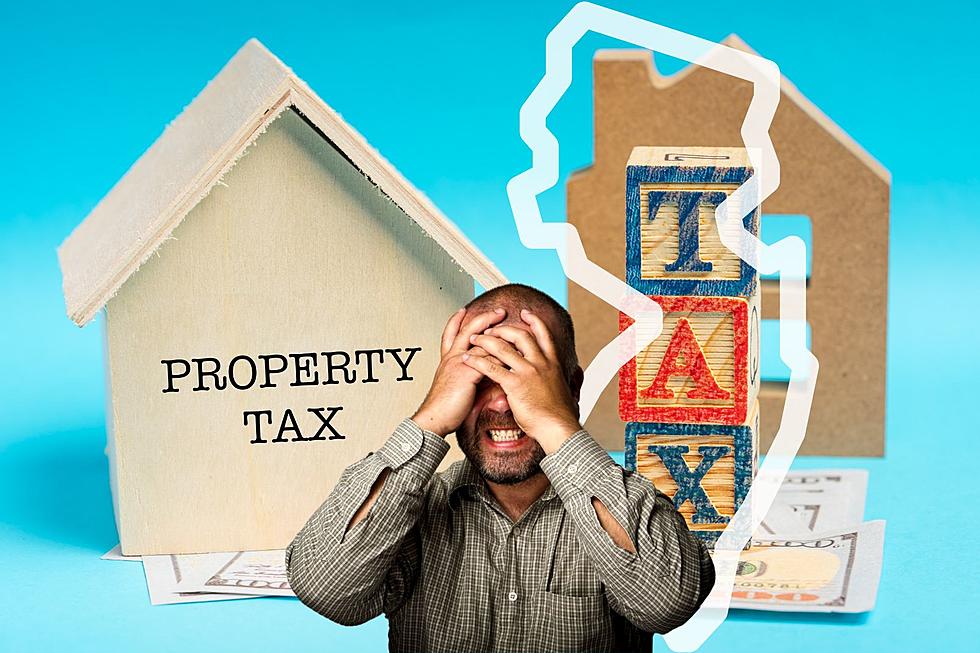
Christie’s Signature All That Remains Before Hike in Gas Tax
TRENTON — New Jersey is one signature away from having its largest and longest transportation construction program in its history. And drivers are about three weeks away from seeing gas prices rise by 23 cents a gallon.
Gov. Chris Christie didn’t act immediately on the Transportation Trust Fund legislation passed by lawmakers Friday, nor the tax changes – five tax cuts, along with a $1.2 billion hike in fuel taxes. The state government is closed Monday for Columbus Day, so the bill signing is likely Tuesday at the earliest.
So long as Christie acts within a week, the 23-cent a gallon hike in the gas tax would take effect Nov. 1. Should he wait, it would take effect 15 days after he signs it.
The tax package passed 24-14 in the Senate and 45-27 in the Assembly. It was backed primarily by Democrats, though it wouldn’t have passed in either chamber if not for support from five Republican senators and seven Assembly members.
Among them was Sen. Joseph Kyrillos, R-Monmouth, who said that because of the tax cuts in the proposal, the deal will be looked at historically as a good deal.
“We rightly dislike an increase in the gas tax. And I wish I didn’t have to pay for it, either, or any of my constituents. But the truth is it’s necessary,” Kyrillos said.
“Throughout my career, I fought against hundreds of ridiculous tax and fee increases. But this one is needed for the safety of our residents, the strength of our economy, historically and now,” he said.
Many lawmakers, both for and against the tax plan, noted the onslaught of calls and emails from constituents angry about the increase in the gas tax.
"I say we listen to our constituents. I've had so many call, some in tears. And I bet you have as well," said Sen. Diane Allen, R-Burlington. "It may not seem like a lot of money to some, but it is a whole heck of a lot of money to many."
“Don’t underestimate the rage that people will have,” said Sen. Jennifer Beck, R-Monmouth, “as they go day by day, week by week, trying to support their families and filling up their gas tax and knowing that we ignored their plea.”
“I’ve heard this: ‘Sen. Oroho, this is going to hurt your career,’” said Sen. Steve Oroho, R-Sussex. “I didn’t come down here for a career. I had a career. I’m very satisfied with my career. I came down here to fix problems. And this is something we must face and fix.”
All the revenues now going into the state’s transportation fund are needed to pay off $20 billion in accumulated debts. The fund has been without resources since July, shuttering hundreds of projects and forcing an estimated 4,000 construction workers off the job.
The construction plan will be funded at $2 billion a year for the next eight years, up from $1.6 billion. Including federal matching funds, that means $4 billion a year in construction spending. It will require $12 billion in additional borrowing over eight years.
The hike in the gas tax more than doubles it, from 14.5 cents to 37.5 cents a gallon. It will go from second-lowest in the nation to seventh-highest, though still lower than in neighboring New York and Pennsylvania.
That regional ranking is important. Supporters of the gas tax say as much as one-third of the gasoline bought in New Jersey is purchased by out-of-state drivers. If that pattern changes when the prices are closer, it could mean another gas tax increase in 11 months.
The bill is written in a way that guarantees the gas tax will generate around $1.16 billion annually for the next eight years. If less gas is sold — perhaps because out-of-state drivers stop buying in New Jersey, or due to more fuel-efficient vehicles — the tax rate would be raised Oct. 1 of that year. If more gas is sold, the tax rate would be lowered.
Sen. Michael Doherty, R-Warren, said gas sales will drop and the tax rate will climb – without a vote from lawmakers or a signature from the governor.
“This had to be dreamed up by some Goldman Sachs executive saying: How can we stick it to the people when they stop buying gas? We’re going to squeeze them and make them pay more,” Doherty said. “And you know who’s going to pay that difference? New Jersey drivers, because the out-of-state folks aren’t going to stupid enough to buy their gas in New Jersey anymore.”
Senate President Stephen Sweeney, D-Gloucester, said he doesn’t think that will happen.
“It’s not an automatic. It’s not an automatic at all,” Sweeney said. “We don’t think so. In fact, when we looked at the federal numbers – and we looked at federal numbers on transportation numbers – we looked like we were fine throughout the process.”
In addition to the gas tax increase, the plan includes five tax cuts.
The largest, in terms of the financial impact on state revenue collections, is a cut in the sales tax. Currently 7 percent, it will go down by one-eighth of a percent on Jan. 1 and another one-fourth of a percent in January 2018, reaching 6.625 percent.
Assemblywoman Amy Handlin, R-Monmouth, said the sales-tax reduction amounts to 38 cents on a $100 purchase of taxable items once fully implemented. She said it’s ethically unacceptable to call that a meaningful break that’s part of a fair trade for the higher gas tax.
“Thirty-eight cents? You can’t buy a postage stamp for 38 cents. That tradeoff isn’t fair. That’s fake. That’s false. That’s fudged. At best, it’s a mirage,” Handlin said.
“Ultimately, promising people unfair fairness is a little bit like gas,” Handlin said. “It’s really slick, but when you get close to it, it smells.”
The next two biggest tax cuts are the elimination of the estate tax by January 2018 and the gradual elimination, over four years, of taxes on retirement income, such as pensions, for retirees with incomes under $100,000.
Sen. Kevin O’Toole, R-Essex, said those changes could be transformative for New Jersey.
“We have to reverse engineer the psychology of people just leaving our state. The single biggest problem we have is people get to 65 years old and they leave. Their kids are here. Their grandkids are here. They leave why? Because they can’t afford to stay,” O’Toole said.
Assemblyman Jay Webber, R-Morris, identified the state’s biggest problem slightly differently.
“You know what the No. 1 big problem is, the biggest problem in the state? The overtaxation that our citizens suffer from. And it makes no sense to try to solve one problem by making our biggest problem even bigger,” Webber said.
“People say people are leaving New Jersey,” Doherty said. “This is only going to exacerbate the exodus. People are leaving New Jersey because they cannot afford to stay here.”
The tax cuts, which also include a bigger tax credit for the working poor and a new income-tax deduction for veterans, would eventually amount to around $1.3 billion in foregone revenue for the state. Some lawmakers opposed the plan because the tax cuts were too big and could lead to spending cuts for priority programs.
"I'll compromise on policy," said Assemblyman John Wisniewski, D-Middlesex, who is exploring a run for governor. "I'm a former state Democratic chair; I'll compromise on politics. But there's one thing that even if you want to, none of us really can. And that is we can't compromise on mathematics."
More From WPG Talk Radio 95.5 FM










